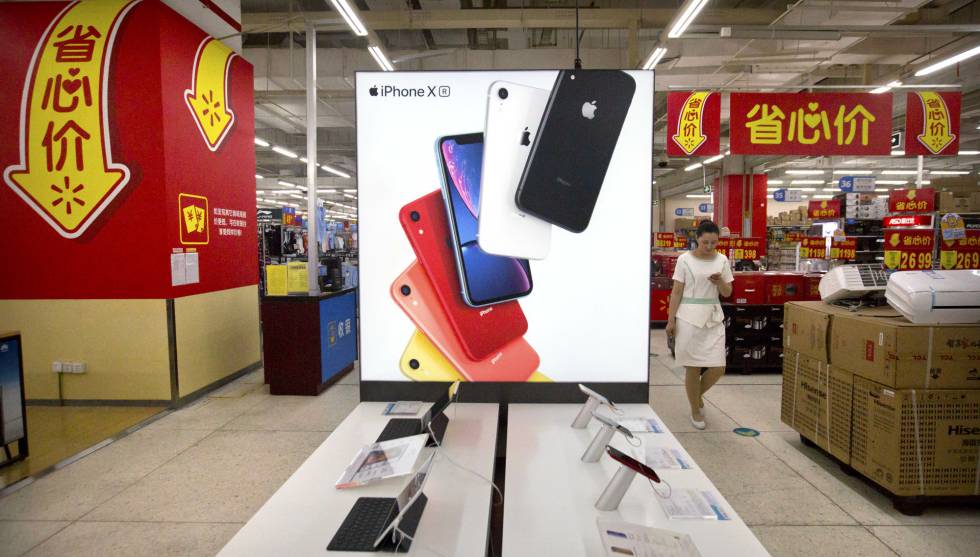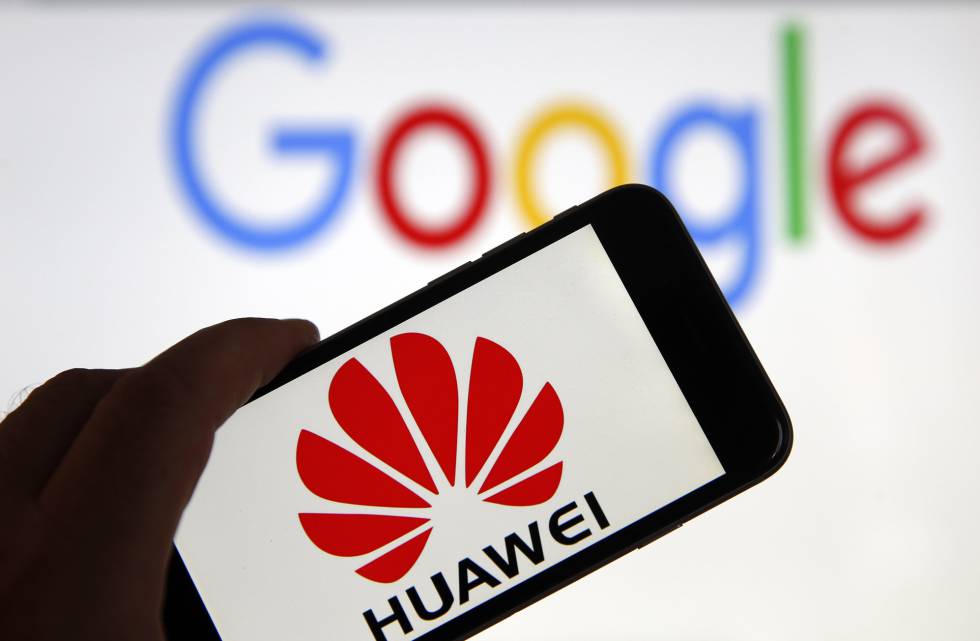Apple may lose in Huawei War
The veto of Google to Huawei , followed by new slamming of other US companies, such as Intel or Qualcomm, has tightened the rope in the technology industry . The inclusion of Huawei in the blacklist of United States prevents the companies of this country to sell hardware and software to the Chinese firm. The consequences can not be foreseen in the long term. But Beijing is expected to retaliate.
The trade war waged by both countries has been an intermittent give-and-take over the past year. Donald Trump has raised the tone of the confrontation again and it is expected that the Chinese Government will do the same. Could your next move aim at the iPhone? In China Huawei is a company that contributes internationally to the country's brand. The same as Apple for the United States, so it would not be unreasonable for the Chinese executive to seek retribution on Apple's smartphone. Read about Facebook Scandal here.
What does China's iPhone have?
In an exercise of political fiction, in which the Chinese government prevented the national companies from doing business with Apple, the manufacture of the iPhone would be seriously affected. The US multinational publishes a list detailing the suppliers it works with, more than 200, from 43 different countries .
Within this list there are a lot of Chinese companies and also many Taiwanese, who have forged their business by raising factories in special economic zones, created by Deng Xiaoping in the eighties. Although Apple does not reveal which work on the iPhone or what specific components contribute.

One of the firms that provides the batteries of the iPhone is Sunwoda Electronic, based in Shenzhen, although Samsung also provides this component. BYD Electronic, a subsidiary of Chinese carmaker BYD, produces parts for mobile phones and is among the companies that serve Apple.
Little known names such as AAC Technologies (manufacturer of receivers, miniaturized speaker modules, microphones), Cathay Tat Ming Precision Metal Products (metal production), Chengdu Homin Technology (battery contact parts, protection element) or China Circuit Technology (circuitry) are other examples of Chinese companies that serve Apple.
Many iPhones of Taiwanese companies, which manufacture in China and could be subject to restrictions by Beijing, also work on the iPhone. The A-series chips are designed by Apple, but are produced by TSMC, the world's largest semiconductor manufacturer. Its factories are in China and in Taiwan. The iPhone is assembled by Foxconn, strongly implanted in the Asian giant. Apple works with another Taiwanese company, Pegatron, which in the wake of the trade war has moved some of its factories to Indonesia.
As for software , in the United States and Europe, hardly any Chinese applications are used in the terminals of the Cupertino company. Only some are popular among users, such as AliExpress (Chinese giant Alibaba) or TikTok, the social network of music videos that rages among the youngest (belonging to ByteDance, a Chinese Internet company).
But China could cut it off if it wanted to. If Trump has prevented the sale of Huawei devices in the United States, Xi Jinping could do the same with the Iphones. Only Huawei is not present in the American market. Apple, however, obtained in 2018 more than 15% of its turnover in the Asian giant. It would not be crazy either. Do not forget that Google, Facebook or Amazon are banned in the Asian country. Apple is, in fact, an exception to the rule.
What do the Huawei of the United States have?
Many things, as has already been seen these days. The software is the most delicate part. The terminals Huawei and Honor (the second manufacturer's brand) will have to abandon Android, as we know it. Trump has given an extension of three months , from which Google will stop updating the system for Huawei.
Failing to see how this really affects users - Android's open source offers advantages to create a new operating system - American applications are a vital part of Huawei's phones. Neither the Google app suite (Gmail, Maps, YouTube, Calendar, Drive, the search engine ...), Facebook (along with Instagram, WhatsApp, Messenger), Netflix, Twitter, Amazon or Skype would be allowed in the terminals of the Chinese brand.

It remains to be seen if Huawei manages to build a platform that allows to run all these applications developed for Android. There are precedents that make this assumption possible, such as the Sailfish OS system . What users will not be able to do is use Google Play to download these applications, because Google can prevent its operation on Huawei devices.
In the hardware plane , Huawei terminals are also highly dependent on US imports . The Chinese manufacturer, which designs its own processors, claims to have stored components to stock their factories in the coming months. But sooner or later you will notice the absence of the Qualcomm and Broadcom antennas and, above all, the memories of Micron and Western Digital.
The Americans Skyworks and Qorvo sell modules with network capabilities, 3G and LTE to Huawei and Corning provides the Gorilla Glass for the screen. Not to mention the European or Japanese that can be added to the veto, as the German chip maker Infineon Technologies has already done.




COMMENTS